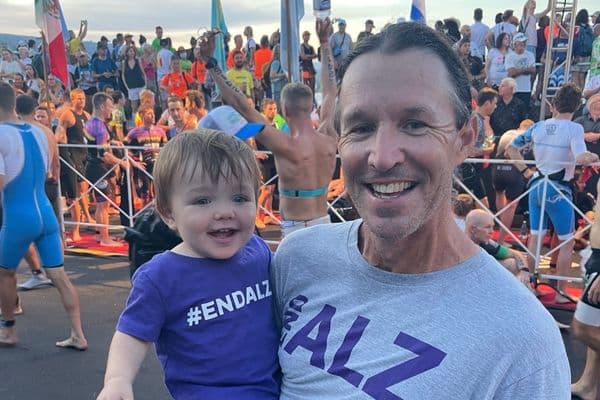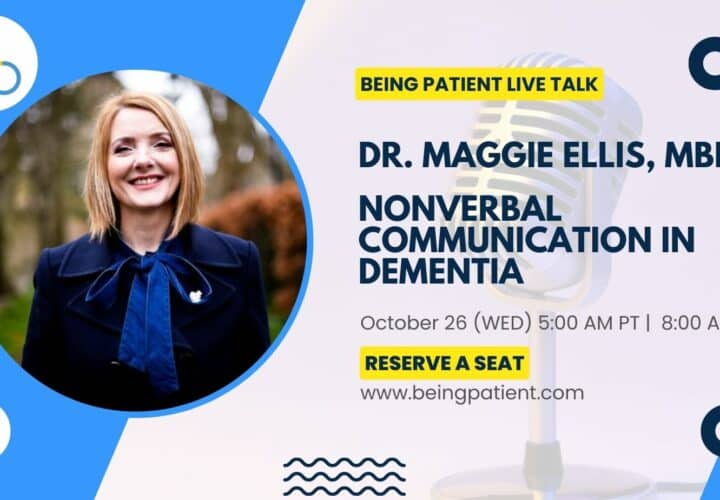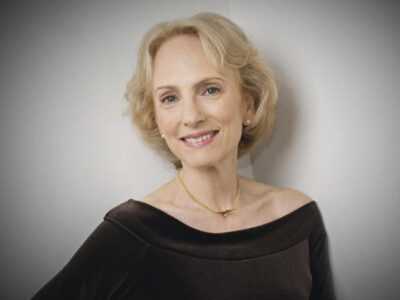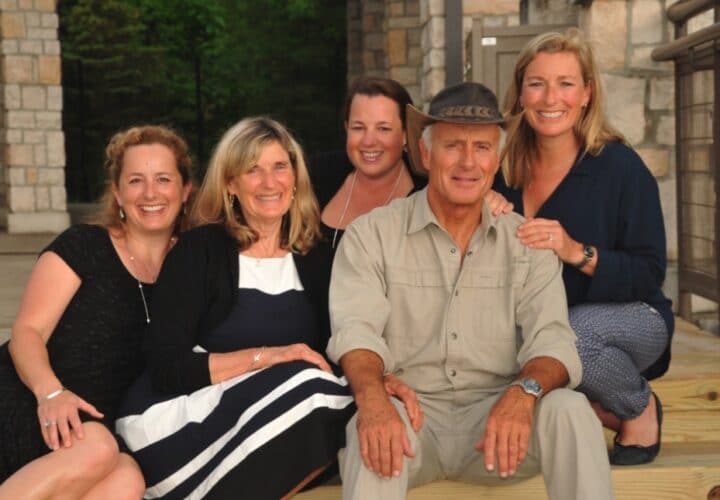Psychologist and composer İdil Özkan shares how music helped her understand her father’s Alzheimer’s journey and how it inspired works like her solo piece for cello, “Passage to Ghostland.”
İdil Özkan is an Atlantic Fellow for Equity in Brain Health at the Global Brain Health Institute, where she integrates scientific research with lived experience and artistic storytelling. With a background in psychology, film scoring, and contemporary composition, she has dedicated her fellowship year to studying dementia and transforming symptoms and emotional states into music. Her recent piece “Fragments of Memories” combines live chamber music, theater, and narration to depict the internal experiences of individuals with Alzheimer’s and frontotemporal dementia.
Through her compositions, including “Passage to Ghostland” and “Fragments of Memories”, Özkan explores the shifting boundaries between memory, identity, and loss. She speaks candidly about the challenges of translating clinical symptoms into musical language — looping, dissonance, and rhythmic patterns that mirror cognitive disruption. Her work underscores the power of music to bridge communication gaps, offering not only a method for expression but also a means of connection for patients and caregivers.
Özkan joined Being Patient’s Mark Niu to discuss the interdisciplinary nature of dementia research and how creative expression can bridge the gap between science and emotion. Özkan emphasizes the role of music not only as a form of communication, but also as a source of healing, connection, and understanding for caregivers and people living with dementia.
Being Patient: Tell us about yourself. What’s your degree in? How did you get interested in this intersection between psychology and music?
İdil Özkan: I was always interested in multidisciplinary things. I started to play piano around six. At the same time, while I was going to the conservatory, I was also going to regular school. So by the time I was finishing conservatory at the university level, I was also finishing my psychology degree. I was always interested in emotions and music and how they relate to each other. After that, I did another degree in film scoring at Berklee College of Music. I was in the States for seven years. Then I went back and did my master’s in contemporary music composition in Turkey again at Istanbul Technical University.
I was always interested in emotions and
music and how they relate to each other.
I was always interested in the relationship [between] music and emotions because when I listen to a piece of music and it’s so fantastic, it kind of floors me and I cannot get enough of it. I get very curious to figure out what’s going on. So I start to analyze it, try to understand what makes it so special, what makes me want to cry or jump or create these emotions. So I started to make these analyses of music, and it turned into a series of talks.
I became a public speaker about music and emotions. Around that time, my father got diagnosed with Alzheimer’s, and it was a very important journey in my life because it was very touching. It still moves me deeply to remember what we experienced. When you are used to expressing things with music, that’s what you turn to. I write a lot to express my feelings and sometimes my thoughts, and I also compose music for that.
For my father’s journey, I wrote a piece called “Passage to Ghostland.” That became the start of my journey to [joining the] Global Brain Health Institute as a fellow. I got invited for this one-year fellowship. We did a lot of learning around dementia, all aspects of it, from the clinical to the research, to the policies, to caregiving.
Being Patient: The Global Brain Health Institute is bringing in people from around the world, from different disciplines, is that right?
Özkan: Yes, it’s a very unique organization because for the past few years, my experience has been that there is an interest in bringing different fields together. Usually, people like to get deep into one’s stuff and get specialized. But lately, I’m seeing this attitude in every field that people try to get different opinions, like artists coming into economic fields or scientific fields, or scientists coming to other fields.
There’s this idea of going back to ancient Greece, collaborating, bringing different types of thinking together. GBHI started to do that [about] 10 years ago. They are bringing mostly medical people, like clinicians and researchers or caregivers, but sometimes they’re also taking artists and people from very different fields, like academicians. The idea is creating this think tank so that we can look at dementia from different lived experiences and different attitudes and perspectives of our jobs.
Being Patient: Let’s take a look at “Passage to Ghostland.”
Being Patient: Tell us your thoughts on creating “Passage to Ghostland” and how that reflects your journey with your father.
Özkan: “Passage to Ghostland” started during COVID. I was approached by Klasik Keyifler, a chamber music organization in Turkey. They were going to do this 300-year commemoration of Bach’s music, celebrating his solo works about cello and violin [called “Sei Solo”]. “Sei Solo” has different meanings, but it’s [about] being alone, being left alone. Those kinds of ideas that fit “Sei Solo” with COVID, the isolation and being alone during COVID.
“Passage to Ghostland” started during COVID. I was approached by Klasik Keyifler, a chamber music organization in Turkey. They were going to do this 300-year commemoration of Bach’s music, celebrating his solo works [for] cello and violin [called “Sei Solo”]. “Sei Solo” has different meanings, but it’s [about] being alone, being left alone. Those kinds of ideas that fit “Sei Solo” with COVID — the isolation and being alone during COVID.
For me, the being alone part at that time referred to my father because he was in a care home, and that was very unexpected. COVID came, and suddenly we were cut off. Nobody could visit, and my father couldn’t talk on the phone. It was impossible to reach out to him. I was very afraid that he was feeling abandoned and left out. Suddenly, there is no one coming and going, and there is no way to explain it to him. That experience was very, very upsetting for me.
I decided to make my father’s feelings into a
piece, to give him a voice, to imagine
what he might be feeling or what
might be going on in his life.
When I received this commission, I was already going through that. I decided to make my father’s feelings into a piece, to give him a voice, to imagine what he might be feeling or what might be going on in his life. That became the piece. What I imagined was my father was sometimes here and sometimes he was transferring to this place that I call the ghost land, he wasn’t reachable. This back-and-forth transition was producing a lot of anxiety. Once the transition is completed, maybe there was more peacefulness in it. I can never be sure. But that was my idea about creating the piece— the back and forth, the here part, the there part, and then the final transition.
Being Patient: This experience also prompted you to look into the Global Brain Health Institute to further examine your situation and perhaps apply it to others and their feelings?
Özkan: Yes. I had no idea about dementia and putting it into music. That wasn’t something that I was very aware of. But through my father’s experience, I became aware of it. My cousin was a fellow at GBHI. He was like, “Look, there is this place that does this amazing work. What you did is actually fitting here. Why don’t you apply?” So I applied to the program. I was thinking that I was approaching music from these two angles. I had this music and emotions. How about I add a brain angle to it? How about I figure out how our brains process music, and wouldn’t [it] be amazing to create this triangle around this understanding? So that was my idea when I applied to GBHI, but it turned out to be something much more than I expected.
Being Patient: What were some of those things that you didn’t expect that came out of this experience?
Özkan: I was very naive in my knowledge of science. I got thrown into this vast knowledge about dementia. I started to read my first scientific papers, which were very cryptic. Then slowly I started to understand what’s going on on the scientific side, what to trust, what not to trust, what to take in with a grain of salt, how they approach art.
Of course, I knew there would be some differences — obviously, there are scientists’ and artists’ points of view. But in some of the studies, I would read about music and think, “But this is not about music.” It’s presented as [if] it’s about music, but it’s dissecting it so much that what you’re actually looking at is just a few sounds that I couldn’t put into the category of music. So it made me realize that there are also gaps that I could be filling.
There’s this collaboration going on between scientists and musicians, and I believe it makes everybody’s work much richer. Those are the things that I didn’t expect. And of course, the huge knowledge about dementia types.

Being Patient: During the live talk, we got to take a look at some moments from a performance of another of your compositions, “Fragments of Memories.”Tell me what’s going on there. You have other people involved, not just musicians, right?
Özkan: Yes, “Fragments of Memories” started as a music piece. That was the idea. I was invited after my fellowship to be the Hellman Artist in Residence at [the] Memory and Aging Clinic, and Dr. Bruce Miller was my sponsor in doing that. My idea was to do this music work that could [represent] different types of dementia, side by side, through music. It started like that. After a few months of conceptual work, it evolved into this work that has theater parts and music parts.
It was a combination of this story between this character called Mr. K and this AI narrator that was functioning as his assistant. We would be watching Mr. K going through three different versions of his life. The first one would be the healthy control subject, but still with [their] struggles. The second part would be frontotemporal dementia. The third part would be about Alzheimer’s. We would see these three different versions of Mr. K. After each theatrical version, they would be followed by music about the emotional side of the story.
With the theater, we would be seeing what can be observed and talked [about]. But with the music, the idea was, can we translate what’s going on inside, find the predominant emotions that are going on through those people’s lives? Of course, that comes with talking to people, observing people, asking people. And to find a way to put that into music, but make it more than an interpretation.
What I really wanted was to find a way to combine the scientific data into music. I worked [for] a year with Dr. Kate Rankin, Dr. Bruce Miller, the Rankin Lab, and many other people. We had these charts about the mannerisms, the predominant symptoms that come with FTD or dementia, the words patients are saying, the standard types of responses they would give [to] certain questions. Whatever they had, I collected, and they all came into the piece.
For example, the piece [on] FTD — I wanted the music to reflect the ritualistic behaviors of people with FTD. It does look strange from outside. I wanted to use a harmonic language that sounds a little bit [stranger] than what we are used to — the tonal language. I use this octatonic harmony. It does sound strange, but you can still kind of relate to it, but you cannot follow its rules very clearly. It creates this strangeness. Rhythmically, I played with a few things. You can tell that there is a pattern, some numbers going on in the rhythm, like a certain code, but it’s not easy to figure out when you’re first listening to it. So that was a way for me to explain FTD through music.
What Is FTD? Dementia Experts Explain Symptoms, Diagnosis and Caregiving
For Alzheimer’s, I knew that I was going to loop the music, break the music, make it repeat. I took this one theme, and I broke it into parts, and I made it repeat and get stuck, representing being stuck in a memory or having different elements from different memories coming together, creating a slight dissonance. It was a lot of conceptual work, and it was a lot of sitting at the table every single day, spending hours on disciplined work.
Being Patient: Do you ever think about what your father would have thought about this piece?
Özkan: I do. My father is a very funny guy in the sense that he had absolutely no interest in music or in my music. So I think he would be more like, “Yeah, well done.” He’s not a very musical person, but I think he would appreciate my efforts to understand him when he couldn’t explain things. I tried to be there with music or without music to figure out what he wants, what he needs. I could tell that he appreciated it.
He’s not a very musical person, but I think
he would appreciate my efforts to
understand him when he
couldn’t explain things.
Being Patient: After having done these works, are there still other aspects of living with dementia that you wish to explore creatively and also through music?
Özkan: Of course. I have this vast information stored in me. I’m deflated because I used a lot of my efforts. I need some time to rest to put my ideas together. But if I put five ideas into this work, I also threw out 85 ideas because it wasn’t their time, and it needed another project. I had this huge idea for a musical piece — that is something that I will for sure be doing. So yes, I’m going to definitely do some things. But first, I’m going to concentrate on “Fragments of Memories” to bring it to more people, to create more shows, partnerships, and sponsorships, so we can bring it out to more people.
Being Patient: How do you think music and creative expression can help people understand and cope with the realities of being a caregiver or living with dementia?
Özkan: I believe we are all creative beings. We start life like that as children. We try things, and we create things. We are creative, but we kind of grow out of it. I believe at times, especially things like dementia or an accident or a trauma, where we’re blocked, our communication ways are limited, that’s when we reach out to art, music, painting, colors, sensory things to express ourselves. I believe that’s a need, and that’s actually when it can shine the most.
I saw many people communicating
through music. Music seems to be one of
the last things that leaves the memory.
I saw many people communicating through music. Music seems to be one of the last things that leaves the memory. So even when people forget names and words, sometimes you listen to a piece of music together and they can sing it. They can sing the lyrics. They can be there with you. You have these fragments of moments in life that you can still connect. Music is a huge help in that.




